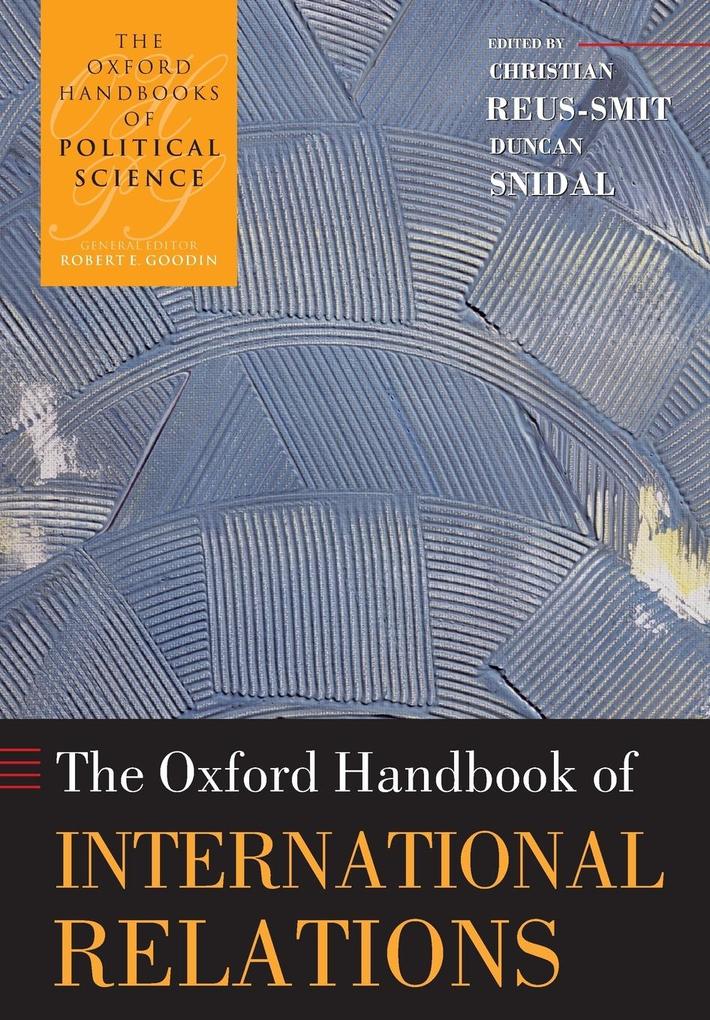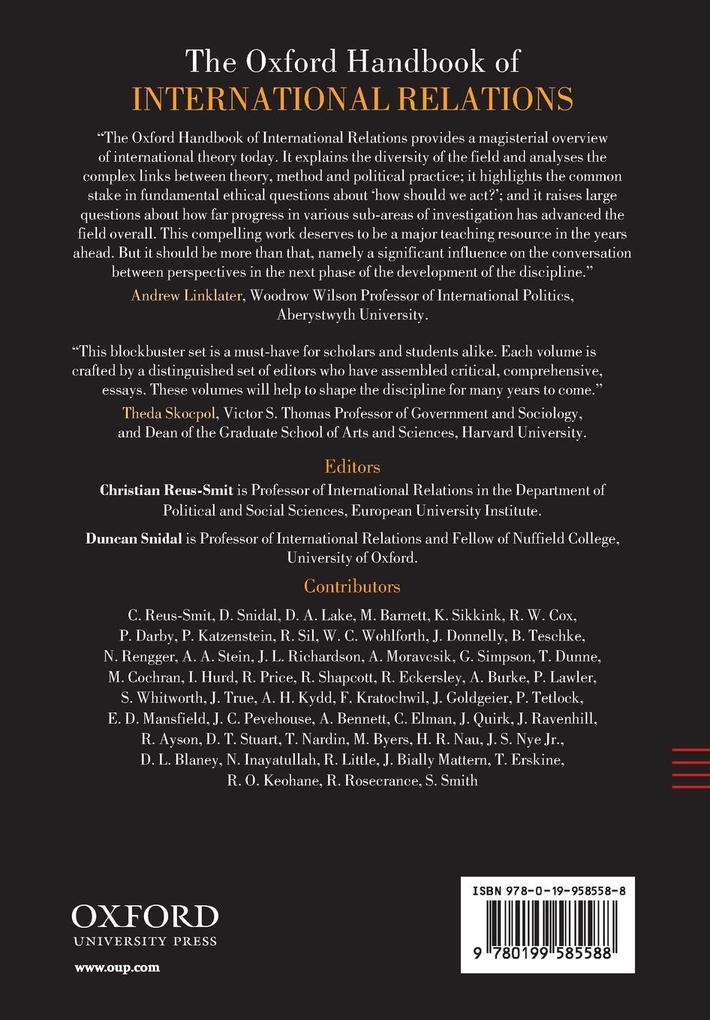The Oxford Handbook of International Relations offers the most authoritative and comprehensive overview to date of the field of international relations. Arguably the most impressive collection of international relations scholars ever brought together within one volume, the Handbook debates the nature of the field itself, critically engages with the major theories, surveys a wide spectrum of methods, addresses the relationship between scholarship and policy making, and examines the field's relation with cognate disciplines. The Handbook takes as its central themes the interaction between empirical and normative inquiry that permeates all theorizing in the field and the way in which contending approaches have shaped one another. In doing so, it provides an authoritative and critical introduction to the subject and establishes a sense of the field as a dynamic realm of argument and inquiry. The Oxford Handbook of International Relations will be essential reading for all of those interested in the advanced study of global politics and international affairs.
Inhaltsverzeichnis
- Part I Introduction
- 1: Christian Reus-Smit and Duncan Snidal: Between utopia and reality: the practical discourses of international relations
- Part II Imagining the discipline
- 2: David A. Lake: The state and international relations
- 3: Michael Barnett and Kathryn Sikkink: From international relations to global society
- 4: Robert Cox: The point is not just to explain the world but to change it
- 5: Phillip Darby: A disabling discipline?
- Part III Major theoretical perspectives
- 6: Peter Katzenstein and Rudra Sil: Eclectic theorizing in the study and practice of international relations
- 7: William C. Wohlforth: Realism
- 8: Jack Donnelly: The ethics of realism
- 9: Benno Teschke: Marxism
- 10: Nicholas Rengger: The ethics of Marxism
- 11: Arthur A. Stein: Neoliberal institutionalism
- 12: James L. Richardson: The ethics of neoliberal institutionalism
- 13: Andrew Moravscik: The new liberalism
- 14: Gerry Simpson: The ethics of the new liberalism
- 15: Tim Dunne: The English School
- 16: Molly Cochran: The ethics of the English School
- 17: Ian Hurd: Constructivism
- 18: Richard Price: The ethics of constructivism
- 19: Richard Shapcott: Critical theory
- 20: Robyn Eckersley: The ethics of critical theory
- 21: Anthony Burke: Postmodernism
- 22: Peter Lawler: The ethics of postmodernism
- 23: Sandra Whitworth: Feminism
- 24: Jacqui True: The ethics of feminism
- Part IV The question of method
- 25: Andrew H. Kydd: Methodological individualism and rational choice
- 26: Friedrich Kratochwil: Sociological approaches
- 27: James Goldgeier and Philip Tetlock: Psychological approaches
- 28: Edward D. Mansfield and Jon C. Pevehouse: Quantitative approaches
- 29: Andrew Bennett and Colin Elman: Case study methods
- 30: Joel Quirk: Historical methods
- Part V Bridging the subfield boundaries
- 31: John Ravenhill: International political economy
- 32: Robert Ayson: Strategic studies
- 33: Douglas T. Stuart: Foreign policy decision-making
- 34: Terry Nardin: International ethics
- 35: Michael Byers: International law
- Part VI The scholar and the policy-maker
- 36: Henry R. Nau: Scholarship and policy-making: who speaks truth to whom?
- 37: Joseph S. Nye, Jr: International relations: the relevance of theory to practice
- Part VII The question of diversity
- 38: David L. Blaney and Naeem Inayatullah: International relations from below
- 39: Richard Little: International relations theory from a former hegemon
- Part VIII Old and new
- 40: Janice Bially Mattern: The concept of power and the (un)discipline of international relations
- 41: Toni Erskine: Locating responsibility: the problem of moral agency in international relations
- 42: Robert O. Keohane: Big questions in the study of world politics
- 43: Richard Rosecrance: The failure of static and the need for dynamic approaches to international relations
- 44: Steve Smith: Six wishes for a more relevant discipline of international relations



































